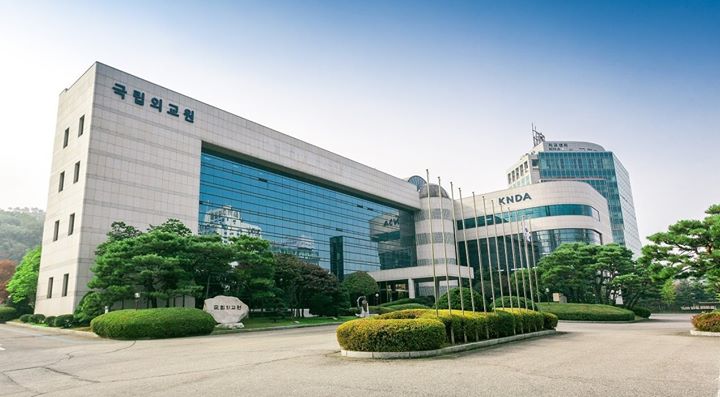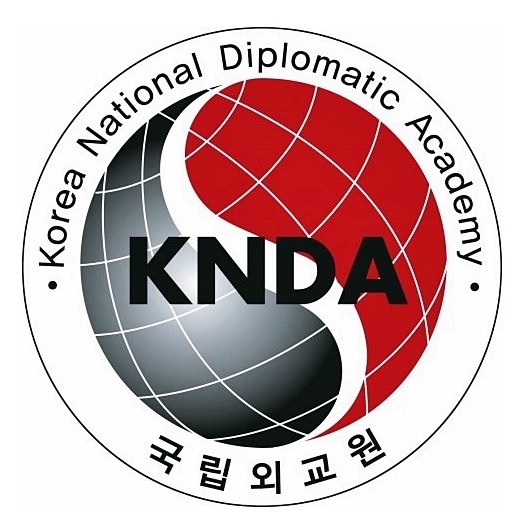
International diplomacy is important to many countries. In the case of Korea, maintaining diplomatic relationships is necessary because Korea is surrounded by countries such as Japan, China, and Russia, and Korea has a close relationship with the US. Diplomats represent their country and perform roles such as building political, economic, and cultural relationships with various countries. Therefore, their roles are significant because of the continuously changing diplomatic environment.
Korean diplomats were selected through the National Foreign Service Exam from 1968 to 2013. However, the National Foreign Service Exam was abolished in 2014, so the system to select diplomats changed from last year. Now, diplomats are selected by a new selection exam, and the candidates who pass the exam receive training in the Korea National Diplomatic Academy. Therefore, the Gazette will introduce the Korea National Diplomatic Academy in this edition.
Diplomat Selection Exam
From 2014, those who want to be diplomats have to take the new diplomat selection exam. The revised system is divided into three steps. The first step is again divided into three. Applicants first have to take an exam whose subjects are English, a second foreign language, Korean history, and the Public Service Aptitude Test. After passing the first exam, the applicants have to take a second exam whose subjects are diplomacy and an essay test. If the applicants pass the second exam, they have an interview. Then, the applicants who pass can enter the Korea National Diplomatic Academy to receive training as diplomats for 1 year. However, they have to take a final test when they complete the course. If candidates pass the final exam, they are appointed diplomats. The fields of the diplomat selection exam are general diplomacy, regional diplomacy such as the Middle East and Africa, and professional diplomacy such as economic diplomacy. Applicants apply for one field among the three.
History of Korea National Diplomatic Academy
The Korea National Diplomatic Academy started as the Educational Institute of Foreign Service Officers (EIFSO) in 1963. At that time, EIFSO only trained diplomats. In 1965, it was reorganized into the Research Institute of Foreign Affairs (RIFA), including activities such as research on diplomatic problems. Then, RIFA started to train diplomats and to research diplomatic policies. In December 1976, RIFA was reorganized into the Academy of Foreign Affairs and National Security, and the research departments were divided according to specific regions and functions because President Park Chung-hee wanted to establish a research institution to research national security strategies. In March 2012, the Academy of Foreign Affairs and National Security was expanded and reorganized into the Korea National Diplomatic Academy (KNDA) to train talented diplomats and to research mid- and long term foreign policy.

Activities of the KNDA
The Korea National Diplomatic Academy performs various activities. The activities are divided into three: education and training, diplomatic competency assessment, and research and academic exchanges.
Education and training are conducted for diplomats, general officials, citizens such as university and graduate students, and foreign diplomats. Diplomats study four fields: public service, professional knowledge such as law, politics, and public administration, diplomatic abilities, and foreign languages. For public service, they study public ethics, international law, and the history of Korean diplomacy, and learn diplomatic abilities such as diplomatic negotiations and how to write documents related to diplomacy. They also take intensive courses in a second foreign language.
Recently, the work of the government, local governments, and public institutions has started to expand to the international field, so there are programs to educate and train general officials. They are divided into two programs: a global leadership program and an international conference and negotiation specialist program. The global leadership program is conducted for 40 executives from public institutions and public enterprises. Through this program, they can grow as leaders in the international field and can improve their understanding of international problems. They receive training in fields such as international relations and Korean diplomacy, recent international issues, and foreign languages.
The international conference and negotiation specialist program is conducted for employees in charge of international work in departments of the government, local governments, and public enterprises. They receive training in theories of negotiation, strategies in negotiation, and English in international conferences for two weeks once a year.
There are also programs for citizens such as a workshop for university students and an international professional women’s internship program. The workshop for university students is conducted to improve their understanding of diplomacy during summer vacation and winter vacation, and they can participate in various programs such as a diplomat’s special lecture and visiting the Ministry of Foreign Affairs. The international professional women’s internship program trains female graduate students to be experts in international organizations and international conferences. The participants can participate in various programs such as lectures about getting work experience in international conferences and discussions.
Finally, there is a program to help foreign diplomats in Korea adapt to Korean culture by providing them with guidance about Korean culture. They receive education in Korean language and culture for three months.
Before the Academy of Foreign Affairs and National Security was reorganized into KNDA in 2012, it established the Diplomatic Competency Assessment Division in 2007. Since the reorganization, DCAD has conducted the diplomatic competency assessment twice a year. When they assess employees in the Ministry of Foreign Affairs, the assessed employees are divided according to job position into senior-level foreign service officers and counselor-level foreign service officers. Six competencies are used for assessing employees. The senior-level foreign service officers are assessed on network building, diplomatic negotiation, crisis management, strategic thinking, change management, and conflict management and integration. The counselor-level foreign service officers are assessed on network building, diplomatic negotiation, crisis management, conflict management, performance-oriented attitude, and guidance and coaching. The employees’ abilities are assessed based on their participation and performance during simulation exercises that are similar to their actual working environment.
The Institute of Foreign Affairs and National Security
The Institute of Foreign Affairs and National Security (IFANS) was separated from the KNDA on March 1, 2012, to perform research on diplomatic relations. It performs various activities such as academic exchanges, public diplomacy, research, and publications about the results of diplomatic research. IFANS regularly holds academic conferences with Japan, the US, China, and Russia to establish a global network. It has also held a conference on global problems with experts in the political and academic fields and the government since 2010. Moreover, it has concluded MOUs with domestic and foreign universities and research institutions to cooperate with them.
For public diplomacy, IFANS has frequent meetings with the diplomatic corps in Korea, members of major foreign institutes such as the International Institute for Strategic Studies (IISS) and Center for Strategic and International Studies (CSIS) and journalists to announce the diplomatic policies of the Korean government. Moreover, IFANS performs research on various countries such as Vietnam, Mexico, Switzerland, and Saudi Arabia as well as the US, Japan, China, and Russia to develop mid- to long term diplomatic policies.
IFANS is divided into five research departments: national security and unification studies, Asian and Pacific studies, American studies, European, African, and Middle Eastern studies, and international economy and trade. Various publications based on the results of the research are published: Prospects for International Relations and Analysis on Current International Issues. Through the publications, the public can improve their understanding of the diplomatic policies of the Korean government and international problems.

The Korea National Diplomatic Academy is training talented diplomats and performing various activities such as the diplomatic competency assessment, research, and academic exchanges as well as education and training for diplomats, general officials, citizens, and foreign diplomats in Korea. Moreover, it also researches and develops various diplomatic policies in IFANS. Its research activities help the public understand the diplomatic policies of the Korean government, and it will continue to train talented diplomats and build relationships with various countries.
